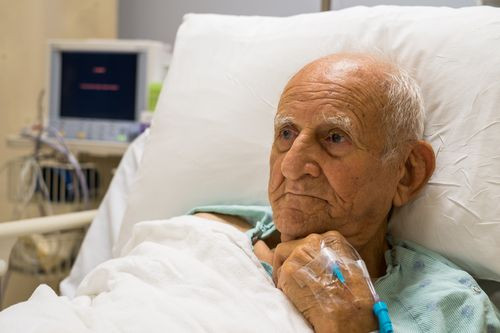Medical Negligence Debate: Should Guilty Health Care Professionals Be Criminalized To Improve Patient Care?

The UK government is currently considering whether to adopt a recommendation to introduce a new criminal sanction in cases where health care workers are "unequivocally guilty of willful or reckless neglect or mistreatment of patients." A discussion published online today in the British Medical Journal questions whether such a measure would be likely to improve patient care.
The Issue
The published debate follows the hearings held by a House of Commons health select committee in response to two inquiries into the "tragedy that unfolded at Mid Staffordshire NHS Foundation Trust between 2005 and 2009, where many of the excess deaths and harms might have been caused by staff negligence." During the period indicated, a government report discovered "conditions of appalling care" had been able to flourish in the hospital serving the people of Stafford and its surrounding area. Among the horrifying conditions discovered: patients left in excrement-soiled bed clothes for lengthy periods, untrained staff who took hold of the triage, filthy unmaintained wards, and a general callous indifference to all patients. The debate, then, follows public hearings, recommendations, and a proposal to legislate on sanctions raised by the chairman of the inquiries.
Britain is not alone in its discovery of patient mistreatment. A 2010 study released by the Department of Health and Human Services found an estimated 27 percent of hospitalized Medicare beneficiaries experienced either an adverse event or temporary harm during their hospital stays and of this total, 44 percent were preventable, according to physician reviewers. An estimated 6,000 "never events" — egregious errors like operations on the wrong limb or instruments left inside a surgical wound — occur every month among Medicare patients alone. More generally, AARP reported that up to a third of all hospital admissions may result in harm to a patient.
Euronews reported that a health insurance report bound roughly 20,000 Germans die as a result of mistakes made in hospitals or clinics each year. Errors include patients contracting infections and being prescribed the wrong drugs and all of the deaths as a result of error combined total more than those from traffic accidents. Meanwhile, back in the UK, the National Reporting and Learning System, according to the Daily Mail, showed a jump of 724 more deaths due to safety incidents: the number of patients who died in the 2011/2012 period amounted to 2,864 compared to 3,588 in 2012/13. The single most important question for health care providers and patients alike is: What can be done to help hospitals and their professional staff avoid making life-threatening mistakes? Clearly some in Britain believe stiffer penalties would help.
The Debate
Taking a position in support of criminalizing negligent health care providers, Dr. Jo Bibby, director of strategy at the Health Foundation, believes criminalizing actions will deter poor care that results in severe harm, but not death. The proposal, she states, will close a gap in the law and as such is an important step to improving patient care. Citing drunk driving laws and smoking regulations, she notes the many instances where new legislation has effectively curbed behaviours suggests any new legislation aimed at health care workers might similarly work in the public's favor. In response to professionals worried about being prosecuted where circumstances beyond their control caused the harm done to a patient, Bibby emphasizes that any proposed legislation would apply "only to 'willful' neglect." Bibby also questions why everyone receiving health care can't be afforded the same protections as patients covered by the Mental Capacity Act. She concludes new legislation "wouldn't be without potential pitfalls" and notes the importance of clarity and of establishing "the understanding required to enable people to work in safe systems of patient care."
From the opposing camp, Dr. Christine Tomkins, CEO of the Medical Defence Union in London, states that sufficient sanctions already exist, in particular for professionals accussed of 'wilful neglect,' and so new restrictions would "be likely to be detrimental" in any number of ways. Tomkins asks how new offences will be defined when it is not clear "whether [it] would involve only 'neglect' or extend also to 'mistreatment' or 'ill treatment.'" It is unrealistic, she believes, to say that a sanction will be applied rarely and adds that the police and Crown Prosecution Service would have to get involved whenever applied, and often this takes years. Tomkins believes that investigations which can "last months and sometimes years" would cause "enormous distress and disruption to those accused and to the NHS generally," further affecting the patients under care. Tomkins says that doctors already follow the GMC's guidance of Good Medical Practice, which sets out clearly "what is expected of doctors for the protection of patients". Tomkins concludes the suggestion that a new sanction would be "a positive step towards improving patient safety" is simply misguided, and she also notes that such action is not in the interests of an open culture.
Source: Bibby J, Tomkins C. Would criminalizing healthcare professionals for wilful neglect improve patient care? BMJ. 2014.



























